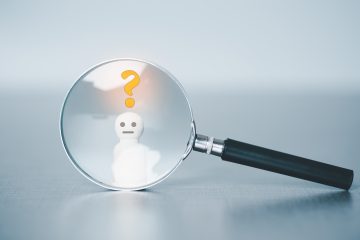He said that I am self-righteous. I’m always right. I can’t be wrong.
A few weeks ago, I made a very simple mistake of poor timing and miscommunication that resulted in me being accused of dishonesty. I can see how it is possible but it wasn’t my intention. It has been blown out to massive proportions. My now ex-client cited further evidence of inconsistent, incongruous miscommunications over the duration of our working relationship.
Naturally, this got my defensive ego rearing her ugly head because firstly, I didn’t know about these inconsistencies. And secondly, I am an honest person, by design. It hurt. It still hurts.
I’m left realising that when you strive to be better and you set your personal standards high, a conflict will arise when values become misaligned and the rules of engagement are not clear from the outset.
Action
I’m not the type of person to sit back and cry poor me. I am active in taking responsibility for everything I experience, whether I like it or not. I sidestep out of the emotion (as best as humanly possible) and research to gather data and evidence.
Evidence Procedure
When these wrongdoings are pointed out to me, the first thing I do is a check-in with myself, is it true? What evidence do I have? Can I prove it? What is imagined and what is real?
My Personal Check-In
In what ways have you been emotionally hijacked? I ask myself via the pen-to-paper process of journaling. I’m checking to see what I am feeling. Journaling for me is the act of creating space in my brain to make sense of the noise surrounding the experience.
At the same time, I talk to those I’m closest with. I demand their honest appraisal. I want them to find the gaps in my logic. I want them to challenge me. Where there is a responsibility to be taken, I want to ensure I apologise as quickly as possible.
Seek evidence from others
When given evidence of something I’m doing wrong, in this instance, inconsistent communication, the next thing I do is seek evidence.
It sounds counter-intuitive to look for more wrongdoing but you have to. You have to know if this is real and not the other person setting a too-high standard upon you.
To date, no other client has had this or a similar experience of me, which leaves me to seek evidence from a professional equivalently trained as I am.
This coaching professional, my Me-for-Me, called me on my egotistic bullshit, turned the mirror on me and showed me how to differentiate in more detail what I’m feeling in the moment from the facts of the circumstance. It was equal parts confronting as it was cathartic and reminded me again of the importance of coaching.
Deciphering fact from fiction
The last step in gathering evidence is to create two lists: What is Fact? and, What is Fiction?
The ‘What is Fact?’ list details all the facts of the conflict or problem. No emotions. It ends up being a list of timestamped actions. I said or did this, he said or did that.
The second list, ‘What is Fiction?’ is a list of thoughts, emotions, or scenarios that are things I have assumed, made up, imagined. Whenever you find yourself saying, ‘he was thinking or feeling …’ this is imagined. You do not know for sure.
With this second list, I then need to determine can I prove these fictions? Do I need to strike them out as irrelevant or do I now have questions I don’t have answers to?
Lastly, I am then tasked with finding the answers to those questions and deciding once again, are they fact or fiction? The process continues its cyclical flow until you have a resolution to the problem.
Be mindful, this resolution process may require you to do it on-the-fly when resolving the conflict with the other party. If you’re well prepared, it’ll be easy.
Insights
There is no point going through something this bad if you don’t learn anything. Here are a few of my takeaways from this experience.
Insight #1 – Values
Sometimes we forget that others operate differently to us. Our values are things that are important to us like authenticity, trust, confidence, money, safety, collaboration, and so forth. All conflicts arise when values are misaligned.
Honesty
In this example, I was accused of dishonesty which misaligned to my highest value of honesty. Honesty, when conveyed with love and compassion is the greatest gift you can give another human being. Honesty isn’t just in your words, its conveyed in your behaviour and body language too.
When conveying honesty, remember TPPN: Time, Place, Privacy and Need. Do they need the information? Not you. Them. Is this information beneficial, supportive and are they ready to hear it? When given this information about my actions, I didn’t have time to prepare these four things and as a result, I became quite emotionally overwhelmed.
High Standards
It’s important to me as a coach that I do set my standards higher than the general population. It’s important that I do strive to be better. It makes me a damn good coach but what it also does, from the perspective of the client, is set an ideal, something for them to strive for.
That’s awesome!
That’s exactly what you want in a coach, someone who is better than you, someone who is demonstrating a higher calibre of potential than you are presently capable of. Someone who can show you the way.
If you’re always learning, you outpace those stuck in non-beneficial ways of thinking and behaving, which can come across as like you are more than, better, self-righteous, elitist, and even arrogant.
What’s essential to recognise is that these negative descriptions are not my behaviours. They are decisions people make about my behaviours based on their way of thinking. It is their perception, not my intention that makes this decision actual.
Human Fallibility
I’m entitled to learn and grow. And I’m entitled to make mistakes. Yes, I set a higher standard but that doesn’t make me superhuman or incapable of doing stupid shit.
I don’t feel as though in this instance I’m being given permission to do that by my client. The reality is though, I don’t need his permission per se. What I need to acknowledge is the consequence of not receiving this value.
You see, technically, no one has to be okay with you making mistakes. It could be that he has perfection as a higher value than human fallibility, my responsibility here is to recognise the misalignment and accept that this value for myself is perfect for me.
Insight #2 – Responsibility
This can be one of the hardest insights to reach. Your beautiful-ugly ego wants to assert their point.
But I’m right… This was my intention… They don’t understand… … Blah blah blah.
My first responsibility is to check my fear-mongering, hurt and emotional ego at the door and look in the mirror.
I am definitely responsible for the inconsistent communications this person has experienced because they were my actions he perceived. I’ve been able to apologise to him but sadly, it has not been accepted. It’s important to appreciate that his acceptance of my apology is not my responsibility.
Taking responsibility for your role in a conflict doesn’t require you to stay in the position of blame if you have genuinely attempted to correct the mistake.
Insight # 3 – Rules of Engagement
The nature of my style of coaching means I learn so much about people and the way their unconscious motivations drive their behaviour that I end up forming a very close, personal relationship with my client. Some would call this friendship, however, I have learned I have to compartmentalize my relationships.
If you are paying me money, we are not friends, we are friendly.
I compartmentalize every action: is this friendship or friendly business? There is no muddy water in my mind but to this person, there was no differentiation. All of his actions, he told me, whether in business or personal, are one and the same. He assumed mine ought to be too.
I don’t want to be like a counsellor or psychologist and distance myself from my clients. I care deeply for them. I think it’s one of the attributes that makes me able to successfully facilitate their change and growth. With other clients, they know that I have two personas: Coach Caz and Friend Cazzie. They understand that they don’t get both of me at the same time.
The responsibility I take in this instance is to ensure I am now very clear about these rules of engagement with future clients.
Final Thoughts
I’m never going to stop striving to be a better version of myself. I do not want to get to the end of this game called Life and have dreams unfulfilled.
This experience has been really hard for me. It’s been confronting and hurtful but I am stronger because of it. I am saddened that this relationship has ended because I really liked this person, but I am not sorry for standing up for myself.
I have only gratitude for the experience and the growth I achieved, as a result, I’m now on a new level.
Your Coach,
![]()


